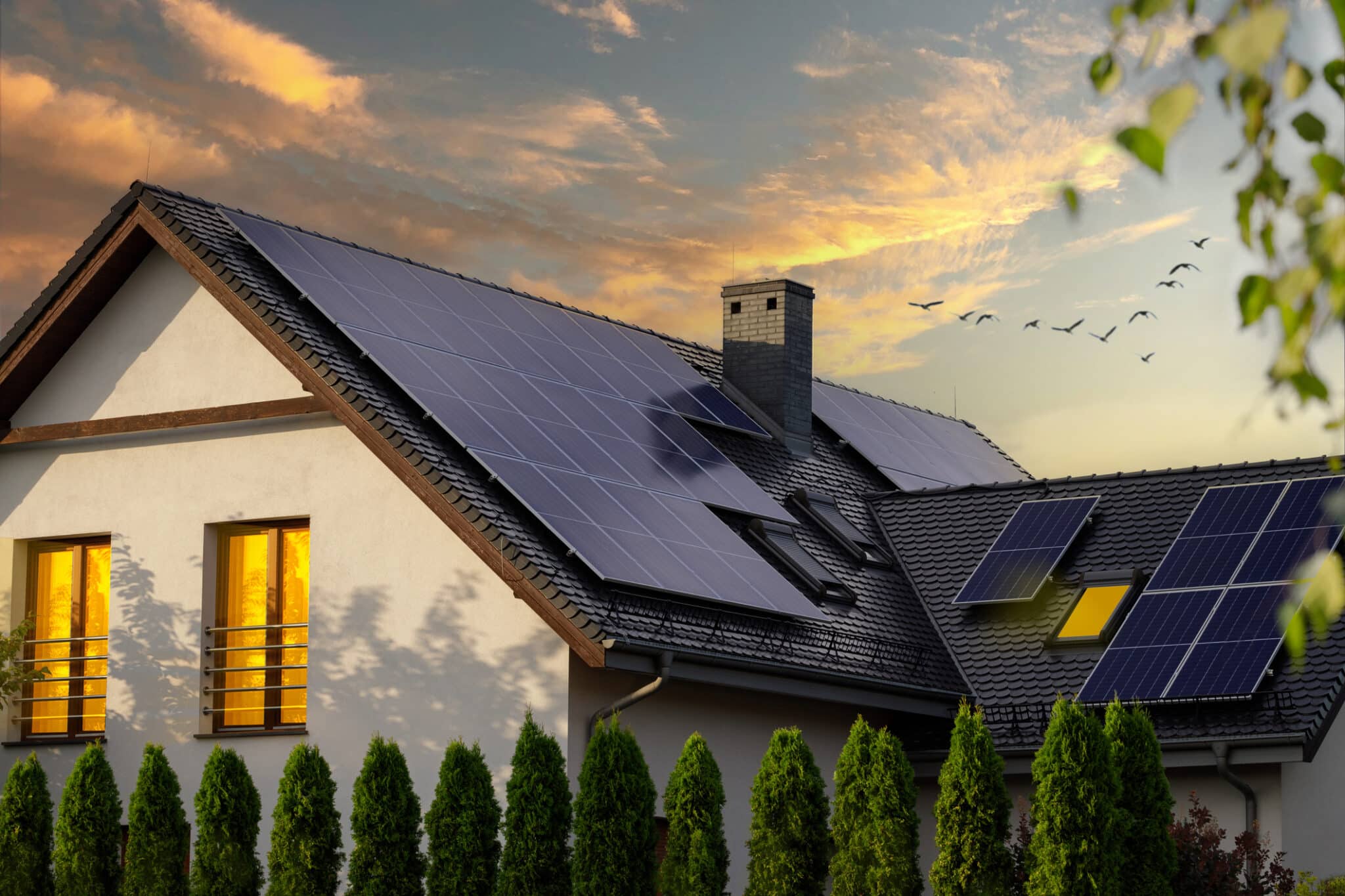Tired of high energy bills or worried about power outages? Energy storage could be the game-changer your home needs. Imagine capturing extra energy when it’s available and using it later – like having your own energy stash for when you need it most.
Whether you’re looking to save money, be kinder to the planet, or just keep the lights on during storms, energy storage can make a big difference. Let’s explore how energy storage works and how it can power up your home management strategy!
What Is Energy Storage?
Energy storage is a system that captures and holds excess energy for later use, helping homeowners manage power more efficiently. Imagine it as a backup power source that stores energy produced during the day, especially from renewable sources like solar panels.
Later, when energy demand is high or sunlight isn’t available, you can draw on this stored power instead of relying on the grid.
This system is particularly useful in areas like Charleston or Summerville, where storms can cause outages. With energy storage, you get a steady power supply, more control over your energy use, and often lower utility bills.

How Does Energy Storage Work in Home Power Management?
Energy storage plays a crucial role in home power management by storing energy when it’s available and releasing it when needed, helping you stay in control of your home’s power.
When paired with renewable energy sources like solar panels, an energy storage system can hold onto the extra energy produced during the day, making it accessible later on. This stored energy can be used when electricity rates are high, during peak usage times, or during power outages.
Storing Excess Energy
When your home generates more power than it needs – like during a bright, sunny afternoon with solar panels – that extra energy is captured and stored in a battery system.
This storage prevents any surplus power from going to waste and gives you a convenient backup to draw on later. Without a storage system, excess power would typically flow back to the grid, providing no direct benefit to your home.
Instead, this stored energy acts as a resource you can access later, maximizing the efficiency of your home’s power generation. Over time, storing excess energy can help you save on energy costs and make your home more self-sufficient.
Using Stored Energy When Needed
Stored energy becomes especially useful in times of high energy demand or during outages, offering a reliable backup power source for your home. For example, on cloudy days, at night, or during peak rate hours, your home can pull from the stored energy rather than buying power from the grid.
This not only provides cost savings but also helps reduce the load on the grid during high-demand times. In areas like Mt. Pleasant, where power stability may vary, stored energy helps ensure that lights, appliances, and essential devices stay powered.
Using stored energy smartly makes your home more resilient, keeps your power supply steady, and reduces reliance on traditional electricity sources.
Types of Energy Storage Solutions for Homeowners
When it comes to storing energy at home, there are a few main options available, each with unique benefits depending on your needs and budget. From batteries to thermal storage, these solutions can help make your home more efficient, resilient, and cost-effective.
Let’s take a look at the most popular energy storage types and how each one works to keep your home powered, whether the sun is shining or the power’s out.
Lithium-Ion Batteries
Lithium-ion batteries are a popular choice for home power storage due to their compact size, light weight, and long lifespan. Known for their high energy density, these batteries can hold a significant amount of power in a small space, making them ideal for homes with limited storage rooms.
They are also highly efficient, meaning they retain most of the stored power and lose very little over time. Though they can be more expensive upfront, their durability and strong performance often justify the cost.
Homeowners in places like Charleston can rely on lithium-ion systems for a stable, long-term power supply that keeps their homes running smoothly.
Lead-Acid Batteries
Lead-acid batteries offer an affordable solution, widely used in both vehicles and home power applications for many years. Although they are bulkier and have a shorter lifespan compared to lithium-ion batteries, lead-acid options provide a cost-effective entry point for home power storage.
These batteries are relatively easy to maintain and can be replaced when necessary. For homeowners wanting a straightforward, budget-friendly backup system, lead-acid batteries deliver solid performance at a lower price. However, they require more space and need replacements more frequently, so planning for these factors is essential.
Thermal Storage Systems
Thermal storage works differently from battery-based options by capturing and storing excess power as heat. This stored heat can later be used for space heating, hot water, or even converted back into electricity, depending on the setup.
These systems are especially beneficial for homes that require substantial heating, as they can offset the need for additional power during colder months.
Thermal storage is an appealing option for homeowners in cooler areas or for those looking to cut down on heating costs. By reusing captured heat, thermal storage provides a unique approach to energy efficiency that enhances both comfort and budget.
Why Is Energy Storage Important for Home Power Management?
Energy storage is vital for creating a stable and efficient power management system at home. By storing energy, homeowners can reduce dependence on the grid, take control of their energy costs, and maximize the benefits of renewable sources like solar power.
Reducing Dependence on the Grid
One of the biggest benefits of energy storage is that it allows homeowners to rely less on the traditional power grid. By storing energy when it’s plentiful, like during sunny or windy days, you can access this stored power even when the grid is down or prices are high.
This makes a home less vulnerable to outages, which is especially useful in storm-prone areas. Relying on your own energy reserves not only improves energy independence but also reduces stress during peak demand times when grid power may be limited or more expensive.
Cost Savings on Electricity Bills
Energy storage can lead to significant savings on your monthly electricity bills. By using stored energy during peak hours when electricity rates are higher, you can avoid paying premium prices.
Additionally, if you generate your own power through solar panels, storing excess energy allows you to use that free power later instead of buying from the grid.
This kind of “time-shifting” helps reduce costs and maximize the value of your renewable energy system, making it a smart choice for homeowners aiming to cut down on expenses.
Supporting Renewable Energy Sources
Energy storage systems are crucial for making renewable energy sources more effective in everyday life. Since renewable sources like solar and wind don’t produce a consistent flow of energy, storage helps balance out these fluctuations, ensuring you have power even when the sun isn’t shining or the wind isn’t blowing.
This means that homeowners can rely more on clean energy sources, reducing their carbon footprint and supporting environmental sustainability. With energy storage, renewables become a more practical and dependable choice for powering your home.
How Homeowners Benefit from Energy Storage Systems
Investing in energy storage brings a range of benefits for homeowners, from providing backup power to adding value to the property. By storing energy, homeowners gain more control over their power usage, save on bills, and reduce their environmental impact. Here are some key ways energy storage systems can make a difference in your home.
Backup Power During Outages
One of the primary benefits of a power storage system is its ability to provide electricity during outages. In regions like Charleston, where storms and power cuts can be common, stored power offers a dependable backup for essential devices and appliances.
Unlike fuel-powered generators, stored electricity operates quietly and doesn’t require constant refueling. This gives homeowners peace of mind, knowing that even in emergencies, their lights, refrigerators, and other essentials will keep running. It’s a hassle-free way to ensure continuity without relying on external sources.
Lowering Environmental Impact
Power storage allows homeowners to make use of more renewable energy, reducing the need to depend on traditional power sources. By tapping into stored clean energy from resources like solar panels, homeowners can continue to use renewable energy even when the sun isn’t shining.
This cuts down on reliance on fossil fuel-dependent grids, which in turn lowers greenhouse gas emissions. Maximizing stored clean energy not only reduces your carbon footprint but also aligns with sustainable living goals. It’s a small step that contributes to a healthier planet while keeping your home well-powered.
Enhancing Home Value
Having a power storage solution can also increase your home’s market value, making it more attractive to future buyers. As more people become aware of the benefits of renewable energy, homes with storage systems stand out in the market.
Buyers appreciate homes that offer lower utility bills, backup power, and a reduced environmental impact. In eco-conscious areas like Mt. Pleasant and Summerville, adding a storage system can make your home more competitive and appealing. Ultimately, it’s an investment that not only saves money but also adds to the home’s overall worth.
Challenges of Energy Storage Systems
While having a power storage system brings many benefits, there are a few challenges to consider. Homeowners should be aware of the maintenance requirements, as well as the lifespan of the batteries used. These systems also take up space, so it’s essential to plan for where they’ll be stored safely and securely.
Maintenance and Lifespan
Storage systems require regular upkeep to ensure they perform efficiently and safely. Battery-based systems, in particular, have a limited lifespan, and their performance can decline over time.
Periodic maintenance, such as checking connections and monitoring battery health, helps extend the life of the system. This maintenance can add to the long-term costs, but it’s essential for keeping everything running smoothly. Staying on top of these requirements keeps your system reliable and efficient for years.
Space and Safety Considerations
Installing a power storage system means finding the right spot in your home that’s safe and accessible. Some systems can be bulky and may need dedicated space in a garage, basement, or utility room. Safety is also a top priority, especially with certain types of batteries that can overheat if not properly managed.
Ensuring your system is installed by professionals can prevent safety issues and optimize performance. Choosing the right location and following safety guidelines ensures the system integrates well with your home.
Choosing the Right Energy Storage for Your Home
Selecting the right power storage solution involves understanding your home’s energy needs, available options, and installation requirements.
With various systems on the market, it’s essential to consider what aligns with your energy goals, whether it’s saving on bills, having backup power, or supporting renewable energy.
Factors to Consider
When choosing a storage system, think about your energy usage patterns, budget, and the type of energy source you’ll rely on. Some systems offer higher capacity but come at a premium, while others may be more affordable but have limitations.
It’s also helpful to consider the lifespan of the system, as some options last longer than others. Installation costs and space requirements should be factored in to avoid surprises down the road. By weighing these factors, you can choose a system that meets your needs and fits your lifestyle.
Matching Storage to Your Home’s Energy Needs
Different homes have different energy demands, so it’s essential to pick a system that matches your usage. A household that uses a lot of power, for example, might need a larger system with more storage capacity.
If you’re mainly looking for backup power during outages, a smaller system might be sufficient. Aligning your choice with your home’s needs ensures you’re getting the best value and maximizing your system’s effectiveness. This tailored approach makes it easier to balance cost, capacity, and convenience.
Consulting with a Professional
Working with a professional can be invaluable in selecting and installing a system that’s right for your home. An experienced installer can help you determine the ideal size and type of system based on your energy patterns and goals.
Professionals can also guide you through safety considerations, local regulations, and rebates that may be available. This expertise ensures your system is set up correctly and efficiently, avoiding potential issues. Consulting with an expert provides peace of mind and confidence in your investment.
Installation and Safety Tips
Installing a power storage system requires careful planning and attention to safety. Always have systems installed by certified professionals to avoid potential hazards.
Make sure the installation area is dry, well-ventilated, and free from flammable materials, especially if you’re working with battery systems.
Regular inspections are also essential to maintain safety and extend the life of the system. Following these guidelines ensures a safe setup that supports reliable and efficient power storage for years to come.
Power Up Your Home with Reliable Solutions from Mister Sparky of Charleston!
Ready to take control of your home’s power? Mister Sparky of Charleston is here to help homeowners in Charleston, Mt. Pleasant, Summerville, and beyond with expert electrical solutions tailored to meet your energy needs and ensure peace of mind.
Whether you’re looking to reduce monthly costs, secure backup power during storms, or support a renewable energy system, our team provides the knowledge and expertise to create a setup that suits your lifestyle.
From installation to maintenance, we’re here every step of the way. Contact us today to discuss the perfect solution for your home’s energy future!

Frequently Asked Questions (FAQs)
What is energy storage, and why is it important?
It allows you to save extra power for future use, helping to lower electricity bills and providing backup during outages. This setup also supports the use of renewable sources like solar. Having stored power improves home energy independence and efficiency.
How long does energy storage last in a home system?
The longevity depends on the type of system; lithium-ion options generally last 10-15 years, while lead-acid versions last about 5-10 years with regular upkeep. Choosing a long-lasting system can enhance the reliability of your stored power.
Is energy storage expensive to install?
Costs vary depending on type and capacity, with lithium-based systems often having higher upfront costs but offering extended longevity. Over time, these systems can provide savings through lower energy costs.
Can I add energy storage to my existing solar panel system?
Yes, most storage systems can be added to existing solar setups, letting you use solar power at night or when the grid is down. This combination makes the most of your renewable energy and increases your home’s resilience.
What maintenance is needed for home energy storage systems?
Regular checks include monitoring battery health, securing connections, testing system efficiency, and occasional cleaning to keep everything running smoothly. Following these steps helps maximize your system’s performance, reliability, and overall lifespan, ensuring your home’s energy needs are consistently met.






